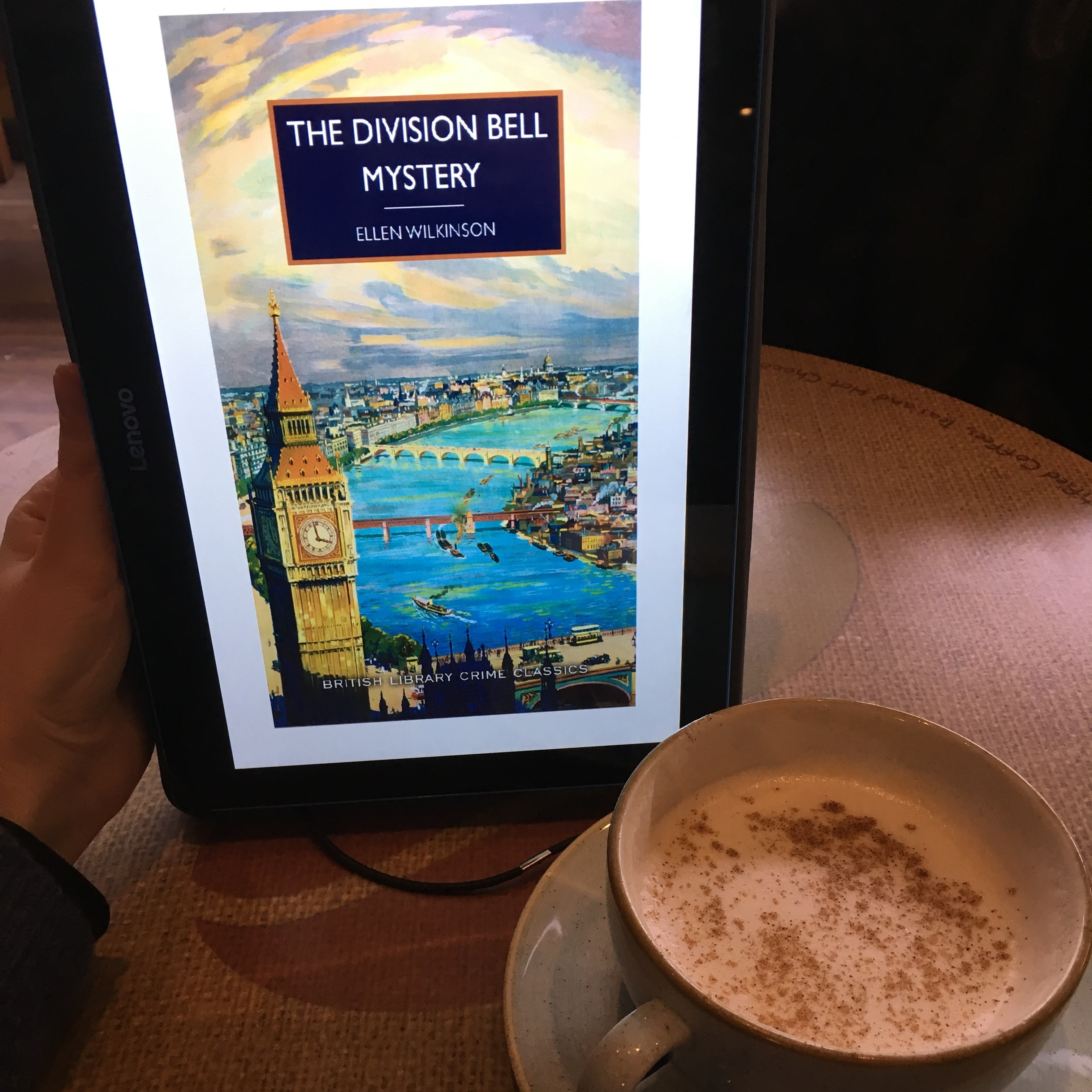highlyeccentric (![[personal profile]](https://www.dreamwidth.org/img/silk/identity/user.png) highlyeccentric) wrote2018-11-30 04:55 pm
highlyeccentric) wrote2018-11-30 04:55 pm
Entry tags:
Review: The Division Bell Mystery

This was the first ARC I received through NetGalley, and I'm delighted that Poisoned Pen Press sent me the e-galley of their new American edition of this British Library Crime Classics novel, in return for a fair review. Out 4 Dec, Americans!
Things I like in a mystery novel: historically specific setting; plot informed by the detail of the setting, written by someone who knows what they’re writing about; engaging narrative voice, bonus points for wry asides; distinct characters; tight structure: deft management of POV and omission to maintain tension without giving the game away.
This book has four of the six, plus a few of the things I like in a curated and republished edition. Ellen Wilkinson served as one of the first women MPs in the Labour Party (UK), and after losing her seat turned her hand to mystery writing, informed by her detailed knowledge of the House of Representatives. The narrative follows a young, not particularly ideologically focused Tory MP as he stumbles first on a murder scene and then on a series of complications which threaten to implicate senior politicians and potentially destabilise the government. The parliamentary and historical (or, for Wilkinson, recent social) details are exquisite, and I particularly enjoyed the wry commentary on the Civil Service and the dangers of politicians straying from the benevolent guidance of their permanent secretaries. The cast of side characters was interesting and well-drawn, and Wilkinson’s attention to the working-class underpinnings of the House (the kitchen, police, and custodial staff, who the POV character regards as a sort of mobile furniture, but who are depicted with authorial warmth) is nice.
The structure, however, could be a lot tighter. There’s a recurring character, Robert’s friend Shaw, who serves no function whatsoever. I don’t think he’s even /supposed/ to be a red herring, but his purpose in being in the story at all was so obscure I was rather disappointed he wasn’t the culprit. And in terms of POV, this book pulled the same trick that ‘Death on the Cherwell’ did in an effort to not have the game given away through the POV character’s eyes: it shifted chief investigator halfway (or more like two-thirds of the way) though, so that the denouement came as a surprise to Robert as much as the reader. I’ve seen this strategy before - most recently in Death on the Cherwell, which is roughly contemporary with The Division Bell Mystery - but I just don’t like it. The Conan Doyle solution (POV character is not the detective) or Kerry Greenwood’s strategy of working with a close POV character but withholding her suspicions from the reader until she drops them on everyone else - both of these seem more effective to me.
As with Death on the Cherwell, the quality of the edition itself deserves a mention. The series carries gorgeous cover illustration, and a pleasingly simple standard design. Each book comes with an introduction contextualising the author and genre, and a foreword by someone with particular insight into the setting or some other aspect - in this case, by a current female MP. I recommend the book if political wonk humour appeals to you, and the series overall to anyone with an interest in the broad genre history of popular detective fiction.
no subject
no subject
Worth it IMHO